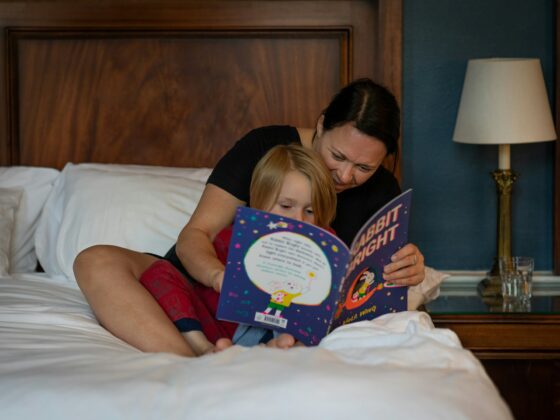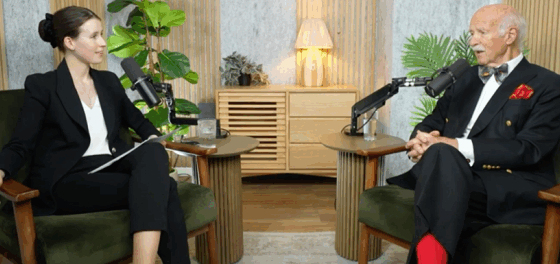
If you’re staying at a luxury hotel, what sets it apart from any other property with high-end fixtures and fittings is the service. And leading that charge is the concierge.
You may have a rooftop pool at home. You may have a personal chef. But you’re unlikely to have someone on hand who can recommend the too-hip-to-know-about theater happening that everyone will be talking about next month.
Exceptional experience is at the heart of lifetime loyalty—and at the core of exceptional experience is the concierge. But as cost pressures grow and the bottom line comes under increasing scrutiny, the role of the concierge is being questioned. Many in the profession feel the clock is ticking on their relevance.
Creating a Return on Concierge
The concierge is essential not just to the guest experience, but also to a hotel’s profitability. That’s why Heather Byron, senior vice president of services at Alliants, and Jordan Kestle, head of international projects at SHL Schweizerische Hotelfachschule Luzern, created the Return on Concierge (ROC) calculation, which debuted at this year’s gathering of Les Clefs d’Or in Madrid.
ROC considers the holistic return generated by concierges—including incremental revenue from upsold services, the goodwill earned through personalized guest experiences, and the positive impact on a hotel’s brand image.
“When we started looking at the concept of Return on Concierge, the narrative was around all the amazing things they do—all the great guest experiences—but there was no way that a concierge could say, ‘Here are five key things that I do that drive definite and obvious value,’” Byron said. “There was a gap in the market, so Jordan and I started looking at it and realized that a lot of the metrics used in other areas of the hotel were also relevant to concierges—but needed to have the right story behind them.
“You might refer people to the same restaurant on property 20 or 30 times, but if you’re not tracking it, then you’re not recording how much revenue that brought into the property. A concierge is PR, an element of sales, a bit of guest experience, a bit of loyalty.”
Connecting Personalization to Profit
Kestle emphasized the practical aspect of building the ROC model.
“We focused on the practical side, by talking to hotels, talking to concierges. We found we needed to link concierges to loyalty—even brand loyalty,” he said. “If the concierge is able to adapt your stay to fulfill your personal needs, desires and wishes, that makes your stay memorable, and it drives guests returning.
“The financial impact of the concierge role is huge, if you measure it. So we need to present these clear metrics—for example, the incremental revenue from concierge recommendations—and then highlight the direct influence on profitability.”
Turning Data Into Proof Points
Research into the impact of the concierge role revealed persuasive data points:
- Ancillary sales can contribute about 10% to 15% of total hotel revenue.
- Upscale hotels often aim for ancillary spend to reach 25% to 30% of room revenue.
- Concierge upselling that moves the needle from 20% to 25% can significantly boost the bottom line.
Additional studies support the concierge’s value:
- A Cornell study found that improving a hotel’s online rating by one star (on a five-star scale) allows the hotel to raise rates by up to 11% without hurting booking conversion.
- A 2023 J.D. Power study found that “personal service is now the highest-scoring factor” in guest satisfaction, eclipsing even room quality.
Byron noted: “The room and the hotel are becoming much more commoditized. And what we’re seeing, even across luxury, is it’s the ‘ands’ that are differentiating you. Maybe the ‘and’ in the past has been the brand or the dynamic or how you feel when you get there. But actually, the ‘and’ in hospitality is the people—and in the role of the concierge, there are proven metrics.”
From Passion to Performance
To quantify the return on concierge services, hotels must track key metrics that correlate with concierge performance. Byron and Kestle recommend tracking:
- Ancillary revenue per guest
- Upsell conversion rate
- Guest satisfaction score
- Net Promoter Score
- Repeat guest ratio
- Online review scores and sentiment
To fully realize ROC, hotels must integrate concierge activity into broader operations and data systems—and invest in tools and training that empower concierges. Framing ROC in relation to core metrics like occupancy, ADR and RevPAR helps secure buy-in from executives.
Being able to prove ROC, they argue, can push the sector forward and attract motivated, service-driven team members.
Human Value in a Digital World
“We are seeing technology come into the sector, which many concierges currently fear will replace them,” Kestle said. “But technology can only go so far. You can use all the information the internet has to provide, but I still truly believe that the personal touch and that personal contact is why we’re in the hospitality industry.”
Byron added: “Communicating value will help operators have that lightbulb moment and realize that the concierge is not solely there to sit behind a desk and be a friend to the guest. There are real numbers behind this essential role.”






